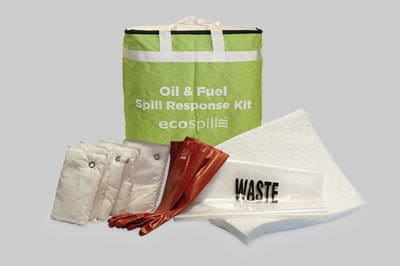Environmental and Marine Spill Kits – The Grand Scale

The extraction of oil on a grand scale has long been a dangerous affair, but extracting it from underneath the ocean floor has pushed it in to new territory. Oil spilt on land is difficult to clean up, but manages to stay relatively well-contained, at least for long enough for remediation efforts to be brought to bear. In deep water, it is a different story.
Cleanup efforts for oil spilt on water are varied, and include such methods as the deployment of booms, physical ‘suction’ remova courtesy of ships, and shoreline remediation. There are also dispersants, of various names, whose main purpose is to break the oil down in to smaller globules, allowing bacteria and wave action to break the oil down more quickly.
This method was most recently deployed during the Deepwater Horizon oil spill in the Gulf of Mexico in May of 2015. When this well blew out, it sheared the pipeline off on the ocean floor, which began to spill oil at a tremendous rate over the course of the next three months. It still stands as the biggest spill in the history of the petroleum industry, with an estimated volume of 4.9 million barrels of oil being released in to the Gulf of Mexico.
Once the difficulty in plugging the well was revealed, BP invested in Corexit, a dispersant, which was applied to the affected area by modified crop-dusting planes. Much of the oil sank in to the depths as a result, but this treatment has proven controversial. Such detergents are by themselves somewhat toxic, and their tendency to keep the oil submerged has been speculated to have been intended to remove the slick from the public eye, rather than effect a long-term solution.
While the usage of such dispersants continues to be studied, this case underlines – on a grand scale – the importance of ensuring that our extraction and usage of petroleum is kept to a high standard of safety, to ensure that such difficult decisions are not necessary. Despite their efficacy, many environmental and marine spill kits are intended to treat spills of considerably smaller scale, and such accidents as Deepwater Horizon have proven that our industrial-scale remediation capacity is still quite limited.
If you’re in need of marine and environment spill kits or expertise, EcoSpill is Australia’s expert. Contact us today or browse our huge range of products.
